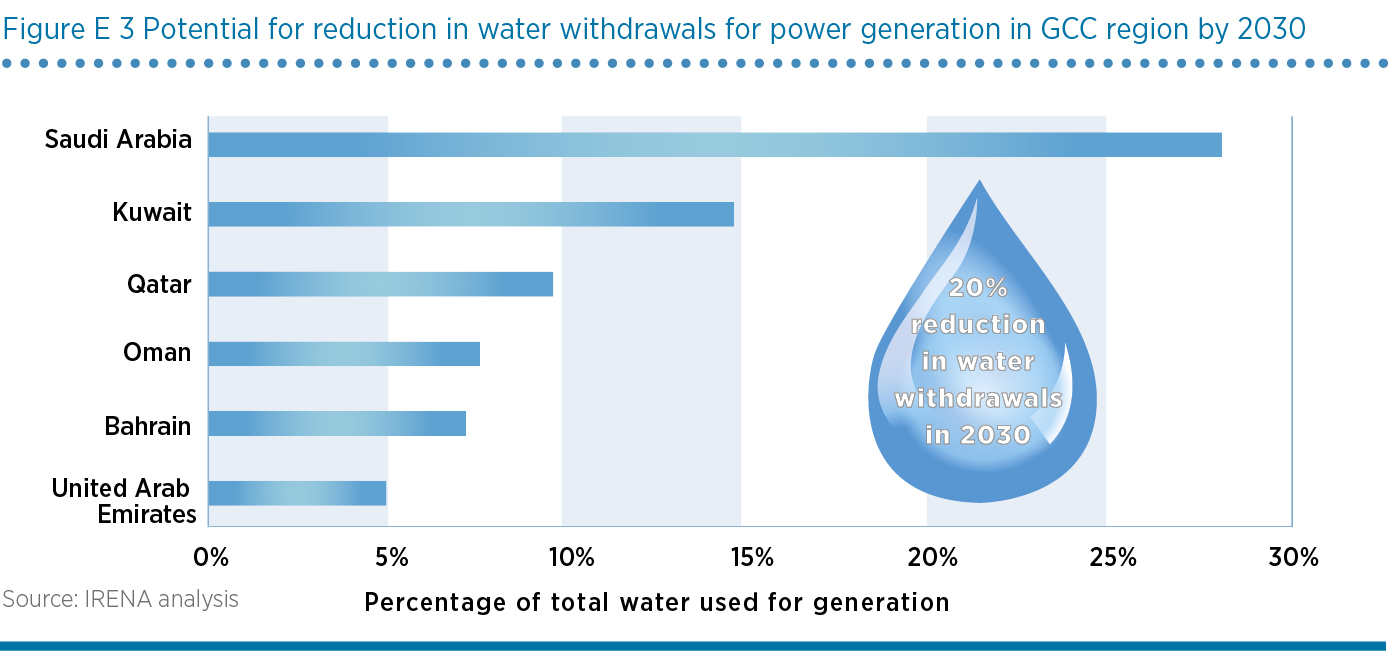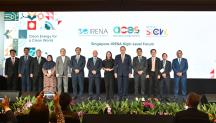

Hitting GCC Renewable Energy Targets Will Cut Energy-Related Water Use by Nearly One-Quarter
Newsletter
Water saving potential of solar photovoltaic and wind among key findings of new IRENA report
Abu Dhabi, United Arab Emirates, 21 January 2015 – Realising the renewable energy plans of the Gulf Cooperation Council region (GCC) will result in a 20 per cent reduction in water withdrawals in the power sector, according to a new report by the International Renewable Energy Agency (IRENA).
The water saving potential of renewable energy is among the major findings in Renewable Energy in the Water, Energy and Food Nexus, released today on the sidelines of the World Future Energy Summit and International Water Summit in Abu Dhabi. The report provides a detailed analysis of how renewable energy can help address some of the most pressing challenges across the water, energy and food sectors.
During the power generation stage, water needs for solar photovolatics and wind are negligible compared to conventional generation, which could require substantial amounts of water for cooling. Solar PV or wind use up to 200 times less water than a coal power plant to produce the same amount of electricity.
“Globally, an energy system with substantial shares of renewables, in particular solar photovoltaics and wind power, would save significant amounts of water, thereby reducing strains on limited water resources,” said IRENA Director-General Adnan Z. Amin.
“Until now, detailed knowledge on the role of renewable energy at the intersection of energy, food and water has been limited. But this first-of-its-kind report shows that in addition to enhancing energy security, improving air quality, reducing carbon emissions and creating jobs, greater deployment of existing renewable energy technology can also bolster water and food security.”
In addition to the water saving potential of renewable energy, the report also shows that renewable energy-based desalination technologies could play an increasing role in bridging the gap between water demand and supply in arid and island contexts. Although renewable desalination can still be relatively expensive, decreasing renewable energy costs, technology advancements and increasing scales of deployment make it a cost-effective and sustainable solution in the long term, the report indicates.
Download the full report here.





